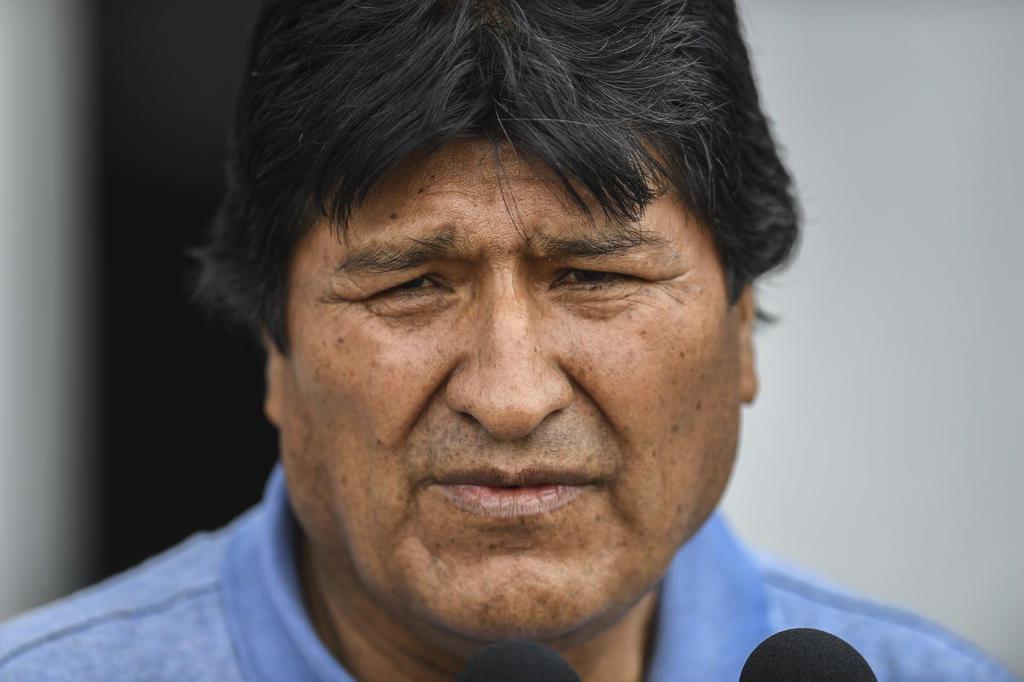RIO DE JANEIRO, BRAZIL – Bolivia has for the time being emerged from the chaotic days following the resignation of President Evo Morales on November 10th, discredited by constitutional breaches and electoral fraud.
Since November 23rd the country’s Catholic Bishops’ Conference, the United Nations, and the European Union played an important role as mediators in talks between the transitional government under Jeanine Áñez, the majority party Movimiento al Socialismo (MAS), trade unions, indigenous groups, and other influential organizations.

Agreement in Congress
As a result, both sides agreed on a law in the MAS-controlled parliament on December 6th, paving the way for the establishment of a new electoral authority and new elections, presumably next March. The law also confirms the constitutional provision that a president may not stand for re-election after two terms in office; Morales had disregarded the result of a referendum he had initiated himself with the help of a compliant judiciary.
The suspension by the interim government of a decree protecting the armed forces from criminal liability in maintaining law and order contributed to a positive climate of dialogue. This further fueled protests after it became clear that the majority of deaths in November had been attributed to the army and police.
Whether there will be an impartial investigation of the most serious incidents and whether the victims will be compensated is now unclear. There is no agreement either on the number of fatalities. While the interim government speaks of 29, the Inter-American Commission on Human Rights has reported 36.
Foreign policy change of course
The interim government’s explicit mission is to establish law and order and to hold clean elections as soon as possible. Nevertheless, it has purposefully established new conditions, particularly in the foreign policy field.
It has announced Bolivia’s exit from the Bolivarian Alliance headed by Chavista Venezuela, expelled Venezuelan and Cuban aid workers called in by Morales, reoccupied the ambassador post in Washington and resumed diplomatic relations with Israel, which were severed in 2009.

Whether this change of course will last depends on the outcome of the new elections. Morales’ MAS is likely to remain the strongest party in the country, provided the current opposition parties do not unite.
It is unlikely that this will happen, given its broad spectrum; it is becoming apparent that several candidates will be competing against the MAS candidacy in the first round of the presidential elections. In particular, there is talk of the moderately conservative former President Carlos Mesa, who was able to win the presidential election regardless of the electoral fraud of the 20th century.
Luis Camacho, the right-wing conservative, who played a leading role in the protests against Morales as head of the Citizens’ Committee in Santa Cruz and who has a major influence on the direction of the interim government.
From Mexico to Argentina
For the time being it is unclear how much Morales will continue to influence the MAS party in the future. Morales can no longer legally run for the presidency and during his Mexican exile, he announced that he would not run for the presidency.
He has since moved to Buenos Aires on December 12th, shortly after the new Peronist government of Argentina under Alberto Fernández took office. Argentina borders Bolivia and is home to around 350,000 Bolivian emigrants. Under the status of political refugee, Morales would be banned from public political activity there.
However, he does not seem willing to comply with this and leaves no doubt that he intends to remain involved in Bolivian politics. The MAS party has already appointed him as its election campaign manager.

Ex-President under arrest warrant
However, it is unlikely that Morales will be able to perform this task fully. The Bolivian judiciary prevented his return by issuing an arrest warrant on December 19th against Morales for insurgency and terrorism. The accusation is that after his flight to Mexico, he urged his followers to block the main cities of Bolivia in order to cut off their supplies of fuel and food.
This is said to be the result of an intercepted telephone conversation, the authenticity of which Morales denies. If the ex-president were to enter Bolivia in secrecy, take action there and eventually be arrested, a peaceful election process would undoubtedly be jeopardized.
During Morales’ reign, it became apparent that a growing part of the MAS no longer wanted to unconditionally dance to his tune. The party’s presidential candidate will shed some light on this.
The main candidates under discussion are Andrónico Rodríguez, vice president of the Cochabamba Coca-Planters Association, which formed Morales’ personal political basis, former foreign minister David Choquehuanca, and Adriana Salvatierra, who stepped down in November following Morales’ resignation.
Clear verdict of the OAS
Morales has been definitively discredited by the Organization of American States’ (OAS) final report on the November 20th elections that was published on December 4th. It clearly describes how the result of the first round of the presidential election was falsified with the connivance of the electoral authorities of the time, in order to save Morales from being disqualified.

